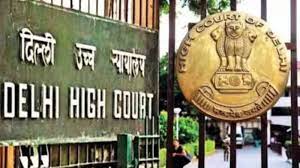


In a pivotal legal development, the Delhi High Court has declined to grant further extension of interim medical bail to Ramesh Chandra, the founder of real estate conglomerate Unitech, in connection with a high-profile money laundering case. Directed by Justice Anoop Kumar Mendiratta, the court has mandated Chandra's surrender before the jail superintendent, emphasizing the gravity of the charges leveled against him. The justice observed that Chandra stands accused of grave offences involving the diversion of funds exceeding Rs 5,000 crore, funds that rightfully belonged to home buyers who now find themselves deceived and without shelter.
This decision, arriving amidst the ongoing legal proceedings, underscores the importance of upholding the rule of law, particularly in cases where financial impropriety detrimentally impacts innocent individuals and families. Despite Chandra's plea for continued bail based on medical grounds, citing his advanced age and health concerns, the court maintained a firm stance, reiterating that bail cannot be claimed as an inherent right, especially when adequate medical care is available within the confines of the correctional facility. While acknowledging the necessity of medical attention, the court emphasized the imperative of closely monitoring Chandra's health status and ensuring the provision of requisite treatment in accordance with jail regulations, thereby safeguarding his overall well-being. This judicial decision manifests the court's unwavering commitment to upholding justice while prioritizing the safety and rights of all involved parties.
It is noteworthy that Chandra's legal counsel had fervently advocated for an extension of the interim bail, citing their client's advanced age and deteriorating health condition. However, their plea was vehemently opposed by the Enforcement Directorate, which cited medical evaluations indicating that Chandra's condition was not deemed life-threatening and could be adequately managed within the prison premises. The court's position on bail for medical reasons underscores the stringent criteria stipulated by the Prevention of Money Laundering Act, necessitating a severe and life-threatening sickness to warrant bail on medical grounds. Furthermore, the treatment required must exceed the capabilities of the correctional facility or custody arrangements to justify such a grant.
As the legal proceedings continue to unfold, it is imperative to ensure accountability for financial malfeasance that engenders far-reaching consequences for unsuspecting stakeholders, particularly home buyers who have been adversely affected. The court's unwavering stance serves as a poignant reminder of the imperative to dispense swift and equitable justice in cases of financial wrongdoing, especially when vulnerable stakeholders are involved. In summation, the Delhi High Court's refusal to grant an extension of interim bail for Ramesh Chandra underscores the gravity of the charges leveled against him and the court's unwavering dedication to upholding the principles of justice. As the legal proceedings progress, it is incumbent upon the judicial system to prioritize the rights and well-being of all stakeholders while ensuring accountability for financial crimes that disrupt the lives of innocent individuals and communities.

News Articles
Other Real Estate News Articles